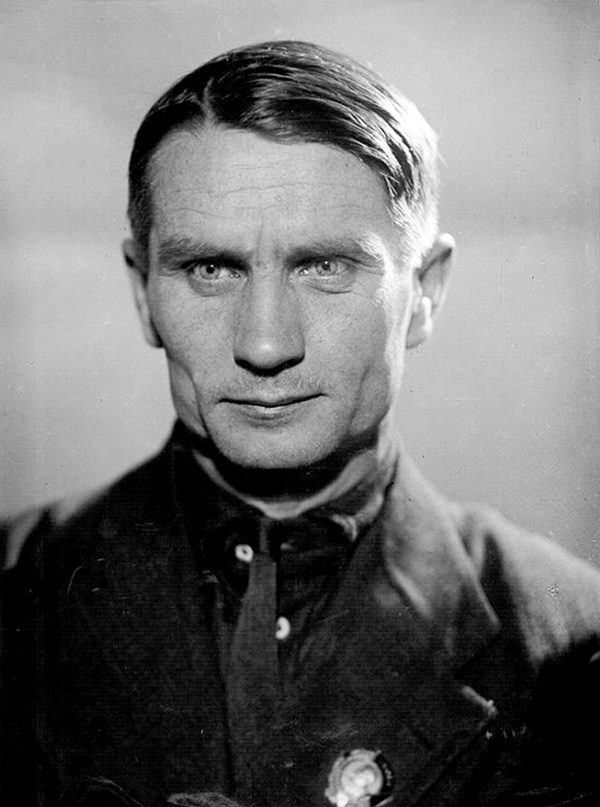Lysenko
Today, a sad wedding of science and politics. The University of Houston presents this series about the machines that make our civilization run and the people whose ingenuity created them.
The Cold War began while I was in college. Faculty were soon being fired for just saying the words Marx or Lenin. Another name that got them into trouble was that of the infamous Soviet agronomist, Trofim Lysenko.

Trofim Denisovich Lysenko 1898-1976. (Image courtesy of Wikimedia Commons)
Lysenko got his start in the late 1920s. Russia was suffering an agricultural crisis. Winter wheat and peas were dying in the harsh winters. So he suggested how to make their seeds survive for a spring planting. The idea wasn't new, but it got Stalin's approval. Lysenko was off and running.
The backdrop at the time was a scientific debate: How did evolutionary change work? Should we accept Mendel's theory of genetic change? Or was Lamarck's theory of adaptation right?
Lamarck had believed evolution was a direct adaptation to nature. And his followers went much further. They said that organisms could inherit acquired traits. A giraffe stretches his neck to get at fruit. That makes its neck a bit longer. That length then appears in its offspring. That sounds silly to us. But many argued that it must be true.
The debate was harsh, but it was still honest. Questions still drove it. Then Lysenko came along. No room for questions for him. He tied Lamarck to communist theory. He said that a change of environment changes an organism's heredity. It leads to a revolution by all the body's cells. Lysenko saw the Communist Revolution playing out in all plants and animals.
He did little systematic science. And what he did do, was inept. But he sang Stalin's song with wild oratory. Stalin repaid him by killing his Mendel-theory opponents. By 1950, Lysenko dominated Soviet science. And his power corrupted him completely. He claimed that, in the right environment, a wheat plant will produce rye. His ideas about growing crops were downright mad. Millions died of starvation as Stalin implemented his claims.
Lysenko was a Russian embarrassment by the time Khrushchev took power. Khrushchev still supported him. But now he allowed articles that criticized Lysenko. And, he famously went to Iowa to see why Americans grew such fine corn. Still, the Soviet Union did not finally denounce Lysenko until 1964.
Lysenko rode his peak power in Russia during America's McCarthy years. And McCarthy played the same kind of game. Americans who'd once joined the old Lamarck/Mendel debate now lost their jobs. The mere mention of Lysenko in a classroom ended teachers' careers. The Russians had given us a terrible lesson in scientific repression. And we bought into it for a season.
We do kill science when we link it to politics. That's how we open the door to the Lysenkos and McCarthys of the world. Only one master can serve true learning. And that is our own free, and delicious, pursuit of our unsatisfied curiosity.
I'm John Lienhard at the University of Houston, where we're interested in the way inventive minds work.
Gould, S.J., The Panda's Thumb. New York: W.W. Norton & Company, 1980.
Gardner, M., Fads and Fallacies in the Name of Science. New York: Dover Publications, Inc., 1957.
For more on Lysenko and the problems of Stalinist biology, see the Wikipedia article on Lysenko.
See also the Wikipedia articles on Lamark and Mendel.
For more on Lysenko and the problems of Stalinist biology, see this website.
For more on Joseph McCarthy, see this Wikipedia page.
This is a much revised version of Episode 494.
This episode was first aired on July 26, 2021